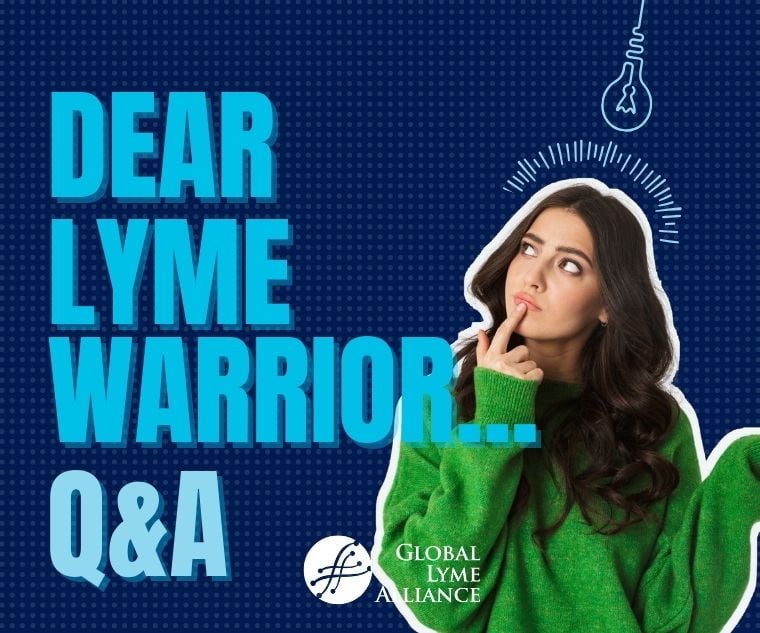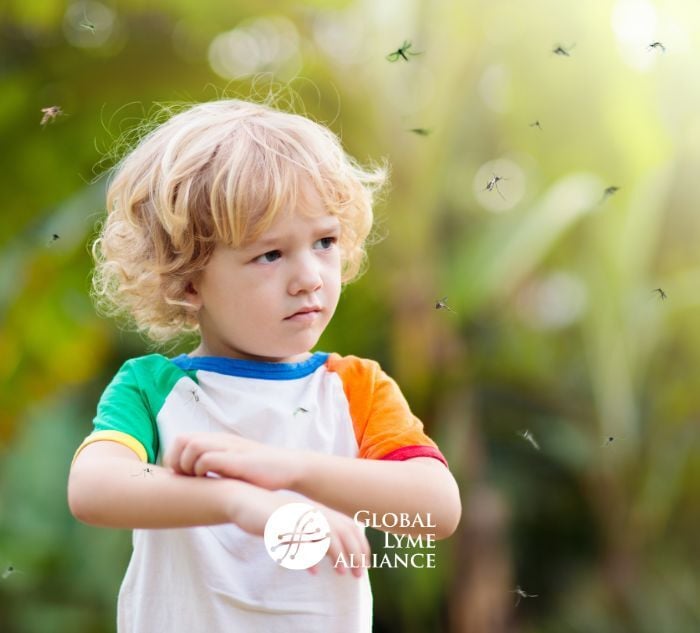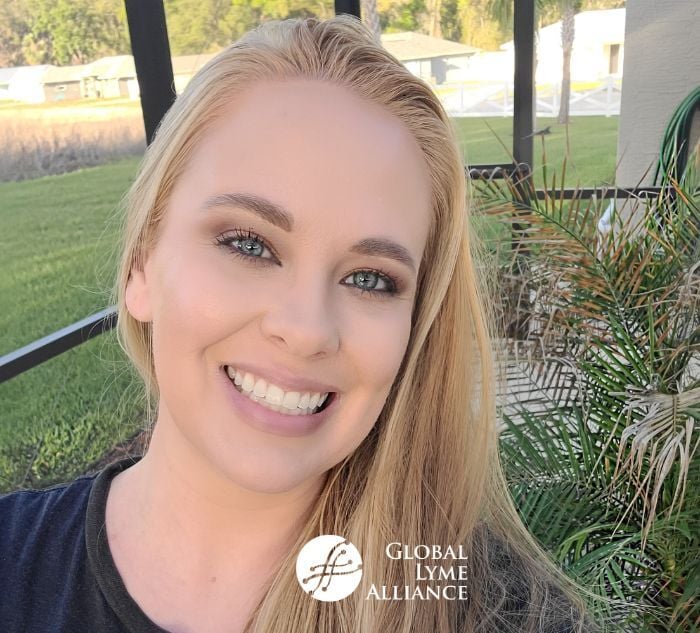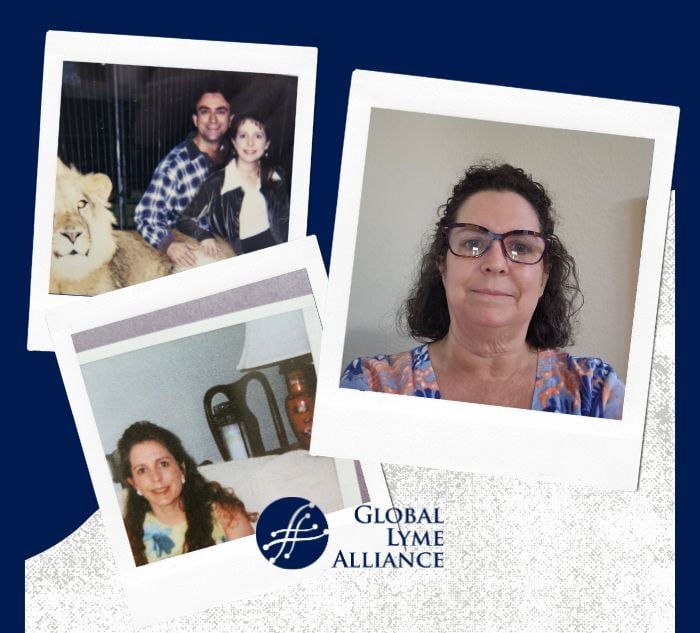Patient-Doctor Q&A: Lyme Disease and COVID-19
Interview by Alex Moresco
I have spent the last few weeks like many of you inundated and overwhelmed by the sheer enormity of the news coverage about COVID-19. Separating fact from fiction is growing increasingly difficult as panic permeates our community. Typically trustworthy media sources are misreporting the COVID-19 pandemic. As someone living with Lyme disease, POTS and SAD, I sought out factual, science-based knowledge on COVID-19. Toward that end, I recently sat down with Dr. Casey Kelley, an Integrative and Functional Medicine specialist (and LLMD), and the founder of Case Integrative Health, who has been reporting live from Chicago as an Illinois COVID-19 expert on Fox 32, Chicago.
 Dr. Kelley graduated from The Ohio State University College of Medicine and completed her residency in Family Medicine at St. Joseph Hospital in Chicago. She is a ten-year member of the Institute of Functional Medicine (IFM), a Director on the board of The International Lyme and Associated Disease Society (ILADS), and is a Founding Member of the Academy of Integrative Health and Medicine (AIHM). Dr. Kelley is also on the faculty at the Feinberg School of Medicine at Northwestern University.
Dr. Kelley graduated from The Ohio State University College of Medicine and completed her residency in Family Medicine at St. Joseph Hospital in Chicago. She is a ten-year member of the Institute of Functional Medicine (IFM), a Director on the board of The International Lyme and Associated Disease Society (ILADS), and is a Founding Member of the Academy of Integrative Health and Medicine (AIHM). Dr. Kelley is also on the faculty at the Feinberg School of Medicine at Northwestern University.
Dr. Kelley answered the following questions submitted by members of the tick-borne disease community.
Q: First of all, what is COVID-19, and what are the early symptoms we should look out for?
A: COVID-19 is a new type of coronavirus that is causing mild to severe symptoms in our population. Most people will have a mild form of the illness while some who have underlying medical conditions, those who are over 60, smokers and those who are immunocompromised are at a higher risk of developing a more severe form of the illness.
Check in with yourself regularly. The most common symptoms to look out for are a fever of 104 or higher, a dry cough and difficulty breathing. Some people are also noting a loss of smell and taste. Less common symptoms include headache and GI upset. Keep in mind, it is also cold, allergy and flu season—if you start to show COVID-19 symptoms, do not panic!
Q: How is COVID-19 spread so quickly from person to person? Is this virus airborne?
A: As a doctor that is sitting with patients all day, every day, I am constantly seeing respiratory illness. If you have respiratory symptoms it might not be COVID-19, but all respiratory illness is generally contagious so treat this like any other illness and self-quarantine.
COVID-19 can spread through respiratory droplets produced when an infected person coughs or sneezes. It may be possible that a person can get COVID-19 by touching a surface or object that has the virus on it, and then touching their own mouth, nose, or possibly their eyes. So you are not likely to catch it just from being in the same grocery store with someone who is sick.
Many of my patients have been asking me—does this spread before you show symptoms? Yes, just like with the flu, it is possible to spread the infection before you know you are sick. Just because you feel well doesn’t mean that you cannot transmit the infection.
Q: As someone with other conditions—like Lyme disease—are there extra steps I should be taking to stay safe from COVID-19?
A: There are certain precautions we can take to stay safe. Remember, do not panic, but be cautious. Avoid contact with people who are presenting COVID-19 symptoms. Stay home and self-quarantine if you feel like you are sick. Avoid public gatherings and practice social distancing, this is how we will keep from spreading the illness faster than our hospital systems can handle. At the most basic level, do not touch your face, do not shake hands, use hand sanitizer with 60% or more alcohol content, and avoid touching things like doorknobs, elevator buttons, and credit card scanners.
Talk to your doctor about ways you can help boost your immune system: supplements, IVs, peptides, etc. One of the most important aspects to treating Lyme disease is boosting the immune system so it can fight off the infection) and protect you from viruses and other illnesses you might come in contact with.
Q: What should I do if I think that I could have possibly come into contact with someone who has COVID-19?
A: First, assess your symptoms, a persistent fever of 103-104, a dry cough and difficulty breathing could be symptoms of COVID-19. If you feel you are unwell, self isolate and then you should call your doctor to discuss your condition and situation. They can help best determine if you need testing.
Q: As someone who is chronically ill, and now worried about COVID-19, what are some simple things I can do to reduce my anxiety?
A: Manage your anxiety and stress (which suppresses your immune system) the best way you can. Find time to reach out to loved ones, take time for self-care—bubble bath anyone?— gratitude, laughter. These are some of the strongest things you can do to stay safe in this time. Set up a phone call with your therapist if you regularly see one. Try not to consume too much news. Set time limits on how much news you watch day to day, and your anxiety should lessen.
Let’s also touch on the importance of lifestyle and self-care. Get adequate levels of sleep, avoid processed foods, eat foods rich in vitamins and minerals. Exercise if you can and get outside!
Q: With the medical community having to adapt to accommodate the COVID-19 outbreak, what has the greatest challenge been?
A: With COVID-19 sweeping the U.S. our work feels like it has greater purpose— to keep patients safe from the progression of the novel coronavirus, and aid in keeping our hospital systems from becoming overburdened and kept available for the most critical COVID-19 cases. In our efforts, we have moved all of our patients to virtual visits. We have also launched small group visits virtually, so we can aid more patients day to day to support their health and immune function during such a critical time. We are happy to help those who are immune-compromised, at any time.
Q: If you aren’t considered high risk but do have cold and flu symptoms, what is the best course of action?
A: The best thing you can do is call your doctor and immediately socially isolate yourself. The important thing to remember during this time is that most will recover from COVID-19, but we must protect our immunocompromised friends.
Q: Generally- what antiviral and immune support protocols should we be following?
A: Supplemental support is crucial right now and we should all be practicing preventative medicine in the coming weeks. If you want to boost your immune system, I recommend: vitamin A 25,000 IU 1-2x/day (NOT if pregnant or if trying to become pregnant), vitamin D 10,000-15,000 IU daily, vitamin C 3,000-6,000 mg daily (watch for upset stomach as a side effect and if so reduce dose), zinc lozenges, elderberry and anti-viral herbs as directed. As always, this is not meant to be taken as medical advice, so please consult your doctor.
Q: Is it safe to take walks in the neighborhood while you are working from home and you are considered healthy?
A: Yes, absolutely! Get outside to breathe fresh air! And exercise is necessary for everyone right now, if possible. Please practice social distancing and stay six feet away from others on the sidewalks. But don’t forget to make eye contact and wave hello to people you see.
You can find Dr. Casey Kelley on Instagram and her website.
*If you suspect you may have COVID-19, please call the office of your health care provider.
Related Posts:
Letter from CEO About COVID-19 and GLA Community
Corona With a Twist of Lyme
Alex Moresco’s Podcast: In The Lymelight

Alex Moresco
Alex Moresco
As someone who lives with Lyme & other illnesses, Alex Moresco’s mission in life is to help others and better the lives of those living with tick-borne illness. As the co-founder of two separate fundraising events in Chicago, She’s raised over $400,000 for Global Lyme Alliance. For interview suggestions, information or just to say hi, you can connect with Alex on Instagram at: @alitmoresco






